S.O.S. Topics
Here are some quick tips that will help with commonly-confused areas of English grammar and usage. To keep things interesting, we’ve added some pictures along the way – enjoy!
Click to jump to a topic:
Tenses and moods
- Active vs. passive construction
- Advice structure in the subjunctive mood
- Common errors in the use of the past perfect tense
- The emphatic future tense
- The present continuous tense
- The future continuous tense
- The present perfect tense
- The present perfect continuous tense
- The mixed conditional: It’s all in the mind.
- The rare double use of the past perfect tense
- Talking about the unreal past
- Two actions in the past do not always equal the past perfect.
Spelling
Sentence construction and punctuation
- A verse on commas
- The bracket and the ellipsis
- Coordinate adjectives
- A false series
- How to punctuate a double quotation
- Is your modifier dangling?
- Expletives
- The participle phrase
- Phrasal verbs
- Subject-verb agreement and singular indefinite pronouns
- The interrupting colon
- Wordiness
English idioms and usage
- A use for “none”
- Absolute adjectives
- “Bystander” vs. “Passerby”
- “Capital” vs. “Capitol”
- “Carved in stone”
- “Clothes” vs. “Cloths”
- “Different Than” vs. “Different From”
- “Get to the point” / “Get straight to the point”
- How to use “there,” “their” and “they’re”
- “Is the glass half empty or half full?”
- “Imbalance” vs. “Unbalance”
- “Just another day at the office”
- “How does it look?” vs. “What does it look like?”
- How quickly can you say it? The winner of the most difficult tongue twister in English
- “Lackadaisical”
- “Literally” vs. “Figuratively”
- “Meanwhile” vs. “While”
- “Moot”
- “Much” vs. “Many” – The scoop rule
- “Nauseous” vs. “Nauseated”
- “Nor” vs. “Or”
- Not “loving” it
- “Politics”
- Polite requests in English
- The Pronounciation of “Ough”
- “Proposition” vs. “Proposal”
- “Proved” vs. “Proven”
- “Reach out” vs. “Contacted”
- Rules when using “unless”
- The “Snowball” Effect
- Sorting it out: Among / Between / Amid
- “So that” vs. “In order that”
- Spoken English words that should not appear in formal written English
- “Supposed to” vs. “Suppose to”
- “Theirselves” and other reflective mistakes
- “Then” vs. “Than”
- “To” vs. “Too”
- To “Talk Turkey”
- Verbs of perception and adjectives
- “Worse” vs. “Worst”
 Active vs. passive construction
Active vs. passive construction
Note in active construction that the focus is on the subject of the sentence whereas in passive construction the focus of the sentence is on the object, and the doer of the action does not have to be identified.
 Advice structure in the subjunctive mood
Advice structure in the subjunctive mood
The subjunctive mood is used in “that” clauses of order, insistence, suggestion, demand and recommendation. Its simple form in the present tense looks similar to an infinitive phrase without “to.”
Some examples:
She suggests that Misha eat a full dish of shrimp.
Note: “Misha eats” becomes “Misha eat.”
The teacher insists that he turn off his cell in the classroom.
Note: “he turns” becomes “he turn.”
Common errors in the use of the past perfect tense
The past perfect is used to show that an action was completed in a “before past” before the recent past action occurred. It is constructed by a had + past participle structure to refer to the earlier past action, and the simple past to denote the most recent past action.
For example: Misha had eaten his dinner by the time I arrived.
Two common errors often occur in the use of the past perfect:
1. The speaker/writer forgets that there have to be two pasts – a before past and a recent past – to form the past perfect tense.
Incorrect: Misha had eaten dinner last night.
Correct: Misha ate dinner last night.
2. The speaker has not observed that he/she is talking about two past actions in which one has occurred before another and as a result the past perfect must be used.
Incorrect: Misha was suspicious that his menu was changed.
Correct: Misha was suspicious that his menu had been changed.
 The emphatic future tense
The emphatic future tense
Generally, the use of “shall” and “will” in the future tense is dependent upon whether the subject of the sentence is used in the first, second or third person.
For example:
Singular:
I shall go to Boston.
You will go to Boston.
He/she/it will go to Boston.
Plural:
We shall go to Boston.
You will go to Boston.
They will go to Boston.

For example:
Singular:
I will help raise money for a new patrol car.
You shall help raise money for a new patrol car.
He/she/it shall help raise money for a new patrol car.
Plural:
We will help raise money for a new patrol car.
You shall help raise money for a new patrol car.
They shall help raise money for a new patrol car.
 The present continuous tense
The present continuous tense
The present continuous tense is the “happening now” tense. It describes an action that is in progress at or around the time of speaking.
For example: He is looking at the clock.
The future continuous tense
The future continuous consists of three forms: will + be + -ing. This tense is used to talk about an action that predicts what one will be doing at a certain time in the future.
The present perfect tense
The present perfect tense is used to say how much one has done. It is often used as a “bragging” tense because a speaker can use it to share his/her accomplishments.
 The present perfect continuous tense
The present perfect continuous tense
The present perfect continuous tense is used to say how long one has been doing something. It is often used as a “complaining tense” because the speaker can use it to complain.
The mixed conditional: It’s all in the mind.
The mixed conditional consists of an imagined past situation and an imagined present result. It is formed by “if” + “had/hadn’t” + past participle followed by “would/wouldn’t” + infinitive.
For example: If I had gone to bed earlier, I wouldn’t be tired now.
 The rare double use of the past perfect tense
The rare double use of the past perfect tense
“All the trust he had had had had no influence on Misha not taking his chair.”
While it may seem strange – and stylistically untidy – this “had had had had” combination can be used as a grammatically correct sentence.
The doubling of “had had” reflects different grammatical roles in this sentence— the first is a modifier while the second is the main verb phrase of the sentence.
 Talking about the unreal past
Talking about the unreal past
Sometimes one imagines what would have happened in the past if she/he had done a different action than the one she/he actually did. In order to express this reflection in speaking or writing an “if” clause is created, which consists of “if” followed by a subject and the past perfect tense.
For example: If the kid hadn’t squirted Grandma with the hose…
(This structure shows an unreal past because in reality the kid did squirt Grandma with the hose.)
In order to complete the sentence structure and to show the result of the action that in reality did not occur, the “if” clause is joined with the main clause by adding a subject, which is followed by “would have” and a past participle.
For example: …he would have been given an ice cream cone.
The completed structure usually has the “if” clause starting the sentence.
For example: If the kid hadn’t squirted Grandma with the hose, he would have been given an ice cream cone.
 Two actions in the past do not always equal the past perfect.
Two actions in the past do not always equal the past perfect.
Although past perfect construction consists of two actions in the past, if the actions happen sequentially close together there is no time for a “before” past to be created. As a result, the simple past rather than the past perfect is used.
For example: She left the store and walked down the street.
 Pluralizing nouns that end in a consonant and “o”
Pluralizing nouns that end in a consonant and “o”
The spelling rule for pluralizing nouns that end in a consonant and “o” is simple – just add “es” to the word.
For example:
Singular: Potato Plural: Potatoes
Singular: Tomato Plural: Tomatoes
Singular: Hero Plural: Heroes
Sample sentence: Misha’s heroes have always been shrimp boat captains.
 The squirrel spelling rule
The squirrel spelling rule
When spelling a word in English, remember that the letter “q” is always followed by either an “a” or a “u” and a following vowel.
 A verse on commas
A verse on commas
A comma is found at the end of certain clauses. Here are some examples:
1 ) An independent clause:
For example: Misha is sitting in the chair, and the mice are hiding.
2 ) An introductory clause:
For example: While the shrimp were being prepared for dinner, Misha napped.
3 ) A subordinate clause that begins a sentence:
For example: Because Misha was napping, the mice played in the kitchen.
Here is a short verse to remember where to place the comma when using the above clauses:
Misha has claws at the ends of his paws.
A comma’s a pause at the end of a clause.
 The bracket and the ellipsis
The bracket and the ellipsis
Brackets [ ] are also known as “square brackets,” and are used in direct quotations to indicate information that was not a part of the original quote.
For example: In the story, “she [Elsie] becomes a Christmas cow on Christmas Eve.”

For example:
Original text: “If the T-Rex should break free from his habitat and come toward the observation pod, stay calm, do not scream, find the nearest exit.”
Shortened text: “If the T-Rex should break free from his habitat and come toward the observation pod…find the nearest exit.”
 Coordinate adjectives
Coordinate adjectives
Coordinate adjectives are two adjectives that modify a noun in the same way. They require the writer to place a comma between them.
For example: Misha’s big, shiny eyes make me smile.
Hint: One way coordinate adjectives reveal themselves is that the comma can be replaced with “and” and the sentence still makes sense.
For example: Misha’s big and shiny eyes make me smile.
 A false series
A false series
When you list items in a series, they must match.
For example:
Incorrect: You can get to Niagra Falls by car, bus, or fly.
Correct: You can get to Niagra Falls by car, bus, or plane.
 How to punctuate a double quotation
How to punctuate a double quotation
If you need to use quotation marks inside quotation marks, use single quotation marks for the quotation within the main quotation. Note that you place all the quotation marks after the period at the end of the quote.
For example: “Let us celebrate with fireworks,” said Misha. “In this way we can add to the party what Sasha calls ‘razzle dazzle.'”
 Is your modifier dangling?
Is your modifier dangling?
What is wrong with this sentence construction?
Watching television, the bed creaked.
Seriously, does a bed watch television?
The problem here is that the writer has unintentionally constructed a dangling modifier. Dangling modifiers are created when the modifying phrase is separated from the subject it is modifying. Correcting a dangling modifier is easy. Simply put the modifier next to its subject.
For example: While I was watching television, the bed creaked.
(The subject of the sentence is “I” followed by the modifying phrase “watching television.”)
 Expletives
Expletives
An expletive is a filler or meaningless word. Try to avoid beginning sentences with “There is…,” “There are…,” or “It is…” Get to the point promptly and delete expletives.
Weak: It is possible that some people will call this art.
Better: Some people might call this art.
 The participle phrase
The participle phrase
The participle phrase is a simple phrase that acts as an adjective. In other words, it tells the reader about the noun it modifies. It consists of a participle, as well as the complements and modifiers that are a part of it. It can be found at the beginning, middle, or end of a sentence.
Smiling for the camera, Grandma was not ashamed that she had dressed her grandson in funny clothes.
Grandma, smiling for the camera, was not ashamed that she had dressed her grandson in funny clothes.
 Phrasal verbs
Phrasal verbs
A phrasal verb contains a verb + preposition. They are also known as “idiomatic” verbs because if phrasal verbs are understood literally they do not make senses. As a result, native speakers understand phrasal verbs because they are cultural and have grown up with them: however, for non-native speakers, phrasal verbs are often a challenge because they are culturally unfamiliar.
Phrasal verbs can be classified into two forms: separable and inseparable. Within a separable phrasal verb, a noun or pronoun can be used to separate the structure.
For example:
Misha looked up the information.
Misha looked the information up.
Misha looked it up.

Incorrect: Grandpa talked to the child.
Incorrect: Grandpa talked the child to.
 Subject-verb agreement and singular indefinite pronouns
Subject-verb agreement and singular indefinite pronouns
“Each,” “either,” “neither,” “anybody,” “anyone,” “anything,” “everybody,” “everyone,” “everything,” “nobody,” “no one,” “nothing,” “somebody,” “someone,” and “something” are singular indefinite pronouns that should be followed by a singular verb or pronoun.
For example: Everyone loves Grandma’s sense of humor.
 The interrupting colon
The interrupting colon
Although many style manuals and composition guides stipulate that a colon never follows a verb, this is not quite true. The rule is that a colon should not come after a clause that cannot stand by itself as an independent sentence. Additionally, the colon is never used to separate a noun from its verb, a verb from its object or subject complement, a preposition from its object, nor a subject from its predicate.
Incorrect: There was one hobby that Misha admired most, namely: animal napkin folding.
Correct: There was one hobby that Misha admired most, namely animal napkin folding.
 Wordiness
Wordiness
In English, it is important to write to express and not impress. Therefore, one should avoid writing lengthy sentences that do not get straight to the point. The secret to a well-written sentence is to use as few words as possible to express an idea. This can be achieved by omitting non-vital information, which can encumber the sentence’s clarity and flow.
Not: Washington National Cathedral, which was founded in 1893, is the sixth-largest cathedral in the world.
Better: Founded in 1893, Washington National Cathedral is the sixth-largest cathedral in the world.
 A use for “none”
A use for “none”
The word “none” is a short variant of “not one.” It is used with non-count nouns to indicate “none of it.”
For example: None of the water from the falls is polluted.
However, when “none” is used with a count noun, it takes a plural verb.
For example: None were happy.

For example: None of the soldiers are marching alone. (“None” meaning no one soldier.)
 Absolute adjectives
Absolute adjectives
Absolute adjectives are words that have no comparative or superlative form because the quantity it expresses is either there or it isn’t.
Some examples of absolute adjectives are dead, square, straight, round, true, perfect, immortal, final, harmless, fatal, universal, and unanimous.
Incorrect usage: Grandma’s Christmas tree was the most perfect Christmas tree.
Correct usage: Grandma’s Christmas tree was perfect.
“Bystander” vs. “Passerby”
A bystander is a person who is at the scene of an event but is not a participant in it.
For example: The bystander watched as the graduating class began to assemble for the graduation ceremony.
In contrast, a passerby is a person who walks past a person, place or thing along the way to his/her destination.
For example: The man reading the newspaper did not see the passerby.
 “Capital” vs. “Capitol”
“Capital” vs. “Capitol”
A quick and easy way to not confuse the spelling or meaning of these similar words is to use this memory hook. Note the letter “A” for “capital” and “O” for “capitol.”
The capitAl city of Greece is Athens
PAris is the capital of FrAnce.
Most CapitOL building have dOmes.
There’s a capitol in Washington.
 “Carved in stone”
“Carved in stone”
This idiom is used to indicate, often in a negative way, that a suggestion, directive, plan or rule is permanent and cannot be changed.
For example: Today’s homework assignment is not yet carved in stone.
“Clothes” vs. “Cloths”
“Clothes” and “cloths” are two different words with two different meanings. “Clothes” are things made from fabric used to cover our bodies.
For example: Grandpa always wore cool clothes.

For example: Grandpa loved white tablecloths. The cloth seen on the table is made from linen.
 “Different Than” vs. “Different From”
“Different Than” vs. “Different From”
While the preposition “than” follows comparative adjectives, such as “better” or “taller” or other comparative words that end in “-er,” it should not follow the adjective “different.” “Different” is used to draw a distinction between two things and is followed by the preposition “from.”
For example: My travels in Bar Harbor, Maine were different from Portland, Maine.
Note, however, in the rare instance when “than” serves as a conjunction it can be used after “different.”
For example: Art on display in St. John’s, Newfoundland is different than in Washington, D.C.
 “Get to the point” / “Get straight to the point”
“Get to the point” / “Get straight to the point”
This idiom means to say something directly rather than in a lengthy way.
For example: You need to get to the point when talking to Uncle Flavel because he has little time to stop and talk.
How to use “there,” “their” and “they’re”
“Their,” “there” and “they’re” are homophones, which mean they are words that have the same pronunciation but different meanings. “Their” is used to indicate something belongs to more than one person.
For example: That is their luggage.
“There” refers to the place something is located.
For example: The luggage is over there.
Finally, “they’re” is the contracted form of “they are.”
For example: They’re concerned about the luggage fee.
“Is the glass half empty or half full?”
This open-ended question is often asked to determine if a person is an optimist or a pessimist. The optimist would reply that the metaphorical glass is half full whereas the pessimist would answer that it is half empty.
 “Imbalance” vs. “Unbalance”
“Imbalance” vs. “Unbalance”
The word “imbalance” is used as a noun to describe a lack of proportion or distribution between corresponding things.
For example: The man noticed an imbalance in food items on one of the tables.

For example: The sun’s warm rays had not yet begun to unbalance the snowman.
 “Just another day at the office”
“Just another day at the office”
This idiom is used to indicate a usual routine. However, it can also be used to show that what may seem an ordinary routine for one person may not be typical for another.
For example: Flying to exotic locations sounds exciting, but for a National Geographic reporter, it is just another day at the office.
 “How does it look?” vs. “What does it look like?”
“How does it look?” vs. “What does it look like?”
Although these question forms may sound the same, they are asking for two different types of information. When a speaker asks, “How does it look?” he/she is asking the listener to give his/her opinion.
For example: Grandma asked, “How do I look?”

For example: Auntie asked, “What does his car look like?
The Winner of the Most Difficult Tongue Twister in English
Sixth sick sheik’s sixth sick sheep.
 Lackadaisical
Lackadaisical
This word is often mispronounced by native speakers who often incorrectly say “lacksadasical” or “laxadaisical.” Lackadaisical means expressing no enthusiasm or interest toward something.
For example: Misha always seems very lackadaisical about his daily routine.
 “Literally” vs. “Figuratively”
“Literally” vs. “Figuratively”
Unlike the word “figuratively,” which describes something metaphorically or not actual, “literally” means without exaggeration and describes something accurately.
For example: Grandfather literally had no idea his old car was worth a small fortune.
“Meanwhile” vs. “While”
Non-native speakers are sometimes confused by the usage of “meanwhile” and “while.” However, knowing the way these words function in a sentence can help to ensure they are used correctly.
“While” serves as a conjunction to discuss two long actions that occur at the same time.
For example: While the students were buying things at the souvenir shop, the teachers looked for a kiosk to buy coffee.
It can also serve as a means to introduce an adverbial time clause that serves to link or balance ideas that contrast each other.
For example: While the flower bloomed, there was a snowstorm predicted.
“Meanwhile,” on the other hand, serves as a linking adverb that sets the stage for one action that will allow another action to occur within the same span of time.
For example: The task of decorating the Christmas tree was soon concluded, for Grandma had in the meanwhile made hot chocolate for everyone.
“Moot”
This is one of the most commonly misused words in English. The native speaker often incorrectly uses it to imply that something is unnecessary or redundant. However, “moot” actually means the subject is disputable or open for discussion. A moot point, for example, rather than implying a matter of no importance actually indicates an issue open for argument.
Correct usage: The suggestion that motorcycles be banned from city limits was a moot point for the mayor’s office.
 “Much” vs. “Many” – The scoop rule
“Much” vs. “Many” – The scoop rule
To make the right choice as to when to use “much” or “many,” imagine an ice cream scoop.
For something – usually non-count nouns – that can be scooped up in it, use “much.”
For example: There is much water in the ocean.
(You can scoop water with an ice cream scoop.)
On the other hand, for things – count nouns – you can’t scoop up in it, use “many.”
For example: There are many people in the street.
(You cannot scoop up people with an ice cream scoop.)
 “Nauseous” vs. “Nauseated”
“Nauseous” vs. “Nauseated”
“Nauseous” is one of the most misused words in the English language. The native speaker often uses “nauseous” to imply that he/she is feeling ill.
For example:
Incorrect: The lunch has made me feel nauseous.
When a person is made ill by something, he/she is “nauseated.”
For example:
Correct: I was nauseated by the lunch I ate.
“Nauseous” does not imply that a person has become ill. It means that the subject of the sentence has the ability to produce nausea.
Correct: Those two raptors are nauseous.
 “Nor” vs. “Or”
“Nor” vs. “Or”
Use “nor” in the negative before the second or last set of possibilities.
For example: Grandmother neither looks cold nor tired.
However, use “or” to connect different possibilities as in: Either Grandmother is becoming a lumberjack or she is stacking firewood.
“Or” can be used in the negative, but “neither” must be omitted.
For example: Grandmother doesn’t look tired or cold.
Not “loving” it
Although movie dialogue and television commercials often use non-action verbs (also known as stative verbs) erroneously in the continuous tense, using non-action verbs in an “ing” form should be avoided. Remember that verbs that express conditions or states, such as love, hate, have, seem, smell, taste, understand, and believe cannot end in “ing. “
For example: I love McDonald’s. (Not “I am loving McDonald’s.”)
However, there is an exception to this rule when it is applied to “see.” If one uses the word “seeing” in terms of “meeting” someone, “see” + “ing” is permissible.
For example: Misha is seeing (meeting) Sasha tomorrow.
 “Politics”
“Politics”
The word “politics” can be used as either a singular or plural noun. However, it is usually treated as a singular.
For example: Politics is not an honest game.
However, when the word is used to represent beliefs, it is used as a plural.
For example: The candidate’s politics are not in agreement with his party’s agenda.
 Polite requests in English
Polite requests in English
The rule to remember when constructing a polite request in English is the more words one uses results in a higher degree of politeness in what is being asked.
For example:
Impolite (Imperative): Don’t scratch on the rug!
Polite (Imperative + please): Please don’t scratch on the rug.
Extra polite (Question + please): Could you not scratch on the rug, please?
Extra polite (Question + -ing): I wonder if you would mind not scratching on the rug?
 The Pronunciation of “Ough”
The Pronunciation of “Ough”
There are nine different ways to pronounce “ough.”
The following sentence below contains all of the different ways “ough” can be pronounced in English.
A rough-coated dough-face, thoughtful ploughman strode through the streets of Scarborough; after falling into a slough, he coughed and hiccoughed.
 “Proposition” vs. “Proposal”
“Proposition” vs. “Proposal”
Both these words are similar in meaning. However, there are nuances that dictate how “proposition” and “proposal” are used. “Proposition” is used within the context of an offer, one that can either be accepted or declined. It is usually presented by a group through a formal presentation and in spoken form.
For example: The city planning commission was considering the company’s proposition.

For example: They submitted a proposal to put a food truck in front of the store.
“Proved” vs. “Proven”
Both “proved” and “proven” mean to show or prove as true. Although each word can be used as the past participle of “prove,” “proven” is an irregular verb structure. Additionally, American English uses “proven” as the preferred past participle of “prove” whereas British English favor the regular form “proved.”
Finding the Yeti’s lair has proven to be a chilling experience.
Finding the Yeti’s lair has proved to be a chilling experience.
 “Reach out” vs. “Contacted”
“Reach out” vs. “Contacted”
The overuse and misuse of “reach out” to substitute for the word “contact” was initiated in the late 1980s by AT&T marketing, which use the slogan “Reach out and Touch Someone” in its television commercials to spin a less formal and a more friendlier variant to “contact.”
However, “reach out” means to offer help and encouragement to someone who is experiencing a difficult time in his/her life.
For example: We reached out to Misha by arranging an intervention for his shrimp addiction.
In contrast, “contact” means to communicate with someone through connection or interaction via letter, phone or email.
For example: Misha contacted Sasha for information on a new diet plan.
In short, “reach out” has become a trendy and insincere substitute for “contacted.” It is a tiresome business cliché, so one should avoid this substitution it if he/she means to initiate contact with someone.
 Rules when using “unless”
Rules when using “unless”
When using the conjunction “unless,” ensure that it is followed by a positive verb.
For example:
Incorrect: Unless the duck does not leave at once, it will not end up on the dinner table.
Correct: Unless the duck leaves at once, it will not end up on the dinner table.
Additionally, “unless” is never used to form a question.
Incorrect: Unless the duck doesn’t leave?
 The “snowball” effect
The “snowball” effect
The “snowball” effect is based upon the principle that as a snowball rolls down a hillside it will rapidly increase in momentum and size. As a result, the idiom is used to suggest a situation or event that rapidly increases in size or significance at a very accelerated rate.
For example: It truly was a snowball effect in that the more the snow covered the holly bush, the more beautiful the bush became.
 Sorting it out: Among / Between / Amid
Sorting it out: Among / Between / Amid
“Among” is used to talk about three or more people or things.
For example: The cake was divided among three people.
“Between,” on the other hand, is always used when referring to two people or things.
For example: The cake was divided between the baby and its mother.
Further, “amid” is used to refer to a person/people or thing/things surrounded or in the middle of something.
For example: They disappeared amid the shrubbery.
 “So that” vs. “In order that”
“So that” vs. “In order that”
Both “so that” and “in order that” are used to talk about purpose and are often followed by model verbs. However, “in order that” is more formal.
For example:
The chicken crossed the road so that he could get to the other side.
In order that he could get to the other side, the chicken crossed the road.
Note: “that” is often left out after “so” in informal situations. For example: The chicken crossed the road so he could get to the other side.
 Spoken English words that should not appear in formal written English
Spoken English words that should not appear in formal written English
Nowadays, What’s more, Last but not least, and Anyways are words that are used in spoken English, but they should not be used in formal written English.
For example:
Incorrect: Nowadays, people dress differently than they did a few decades ago. What’s more, clothing styles in the 21st century are more casual.
Correct: Today, people dress differently than they did a few decades ago. Moreover, clothing styles in the 21st century are more casual.
 “Supposed to” vs. “Suppose to”
“Supposed to” vs. “Suppose to”
“Supposed to” is the correct spelling of this adjectival phrase, which means to be required or expected to do something. It is often written incorrectly as “suppose to.”
 “Theirselves” and other reflective mistakes
“Theirselves” and other reflective mistakes
In English “theirselves” is not a recognized word. Neither are the words “hisself” or “mines.” The correct forms are “themselves,” “himself,” and “mine.”
For example: They entertained themselves by taking winter walks beside the Lincoln Memorial Reflection Pool.
 “Then” vs. “Than”
“Then” vs. “Than”
“Then” and “than” are often confused in their usage. “Then” is mainly an adverb, commonly used to note actions within a specific point in time.
For example: Misha ate breakfast and then he took a nap.
“Than” is a conjunction and is mainly used to compare two things.
For example: My breakfast is better than your breakfast.
 “To” vs. “Too”
“To” vs. “Too”
“To” and “too” are homophones. They are pronounced the same way, but they have different spellings and different meanings.
“To” is a preposition that means in the direction toward somebody or something.
For example: The baby gave a kiss to Grandpa.
“Too” is an adverb that can mean either “extremely” or “additionally.”
For example: It is too cold to play outside today.
For example: While Grandpa likes books, he wants a newspaper to read too.
 To “Talk Turkey”
To “Talk Turkey”
The idiomatic expression “to talk turkey” means to discuss a point directly and earnestly.
For example: “Let us talk turkey, did you cook the bird yourself?”
 Verbs of perception and adjectives
Verbs of perception and adjectives
Unlike adverbs, adjectives can follow stative verbs (verbs of perception).
Verbs of perception consist of such words as to see, to look, to hear, to sound, to smell, to feel, and to taste.
 “Worse” vs. “Worst”
“Worse” vs. “Worst”
Worse is used as a comparative form. It serves as a comparative adjective for “bad” and compares two things.
For example: I think that living in a tent is worse than living in a cabin.
However, when “worst” is used as a superlative form – it means that one thing is worse than all the others. It serves as the superlative adjective for “bad” and compares more than two things.





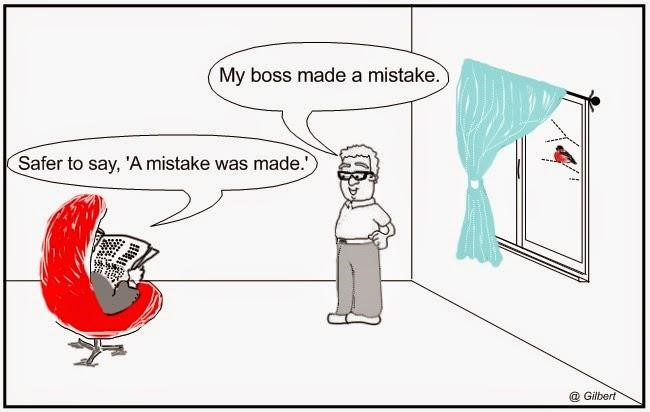 Active vs. passive construction
Active vs. passive construction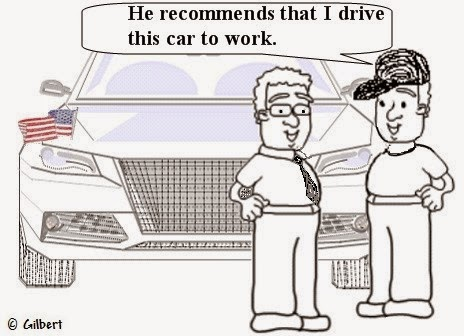 Advice structure in the subjunctive mood
Advice structure in the subjunctive mood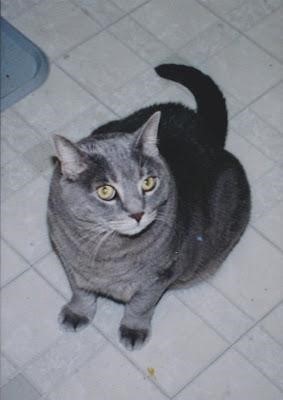
 The emphatic future tense
The emphatic future tense The present continuous tense
The present continuous tense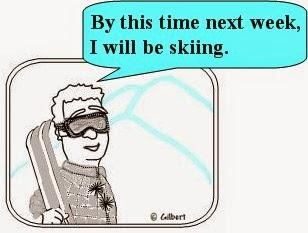
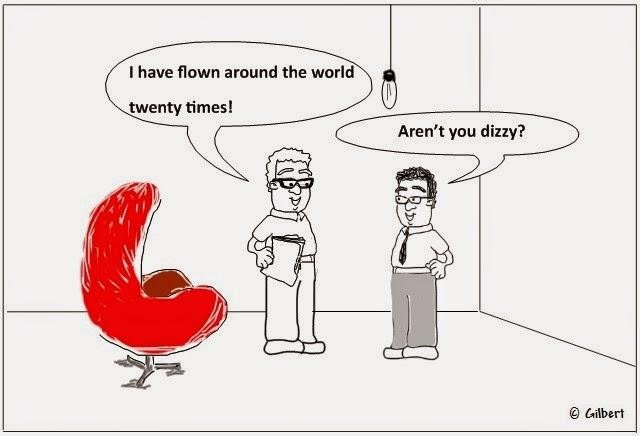
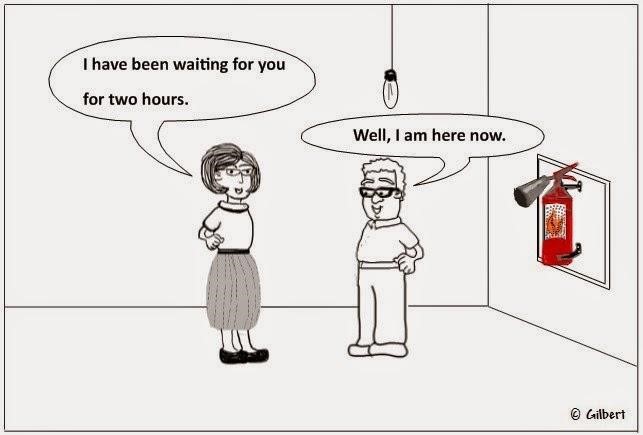 The present perfect continuous tense
The present perfect continuous tense
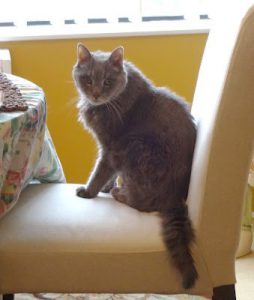 The rare double use of the past perfect tense
The rare double use of the past perfect tense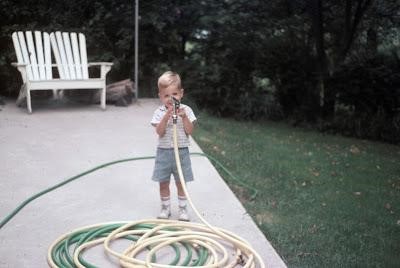 Talking about the unreal past
Talking about the unreal past Two actions in the past do not always equal the past perfect.
Two actions in the past do not always equal the past perfect. Pluralizing nouns that end in a consonant and “o”
Pluralizing nouns that end in a consonant and “o” The squirrel spelling rule
The squirrel spelling rule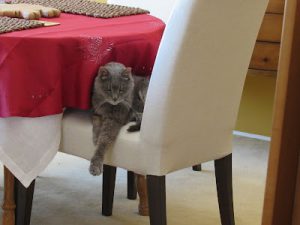 A verse on commas
A verse on commas The bracket and the ellipsis
The bracket and the ellipsis Coordinate adjectives
Coordinate adjectives A false series
A false series How to punctuate a double quotation
How to punctuate a double quotation Is your modifier dangling?
Is your modifier dangling? Expletives
Expletives The participle phrase
The participle phrase Phrasal verbs
Phrasal verbs Subject-verb agreement and singular indefinite pronouns
Subject-verb agreement and singular indefinite pronouns The interrupting colon
The interrupting colon Wordiness
Wordiness A use for “none”
A use for “none” Absolute adjectives
Absolute adjectives
 “Capital” vs. “Capitol”
“Capital” vs. “Capitol” “Carved in stone”
“Carved in stone”
 “Different Than” vs. “Different From”
“Different Than” vs. “Different From”
 “Get to the point” / “Get straight to the point”
“Get to the point” / “Get straight to the point”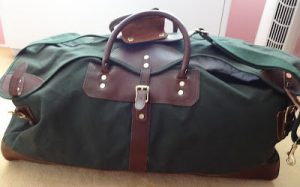

 “Imbalance” vs. “Unbalance”
“Imbalance” vs. “Unbalance” “Just another day at the office”
“Just another day at the office” “How does it look?” vs. “What does it look like?”
“How does it look?” vs. “What does it look like?”
 Lackadaisical
Lackadaisical




 “Much” vs. “Many” – The scoop rule
“Much” vs. “Many” – The scoop rule

 “Nauseous” vs. “Nauseated”
“Nauseous” vs. “Nauseated” “Nor” vs. “Or”
“Nor” vs. “Or”
 “Politics”
“Politics” Polite requests in English
Polite requests in English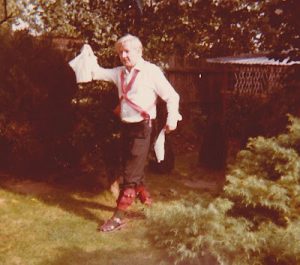 The Pronunciation of “Ough”
The Pronunciation of “Ough” “Proposition” vs. “Proposal”
“Proposition” vs. “Proposal”
 “Reach out” vs. “Contacted”
“Reach out” vs. “Contacted”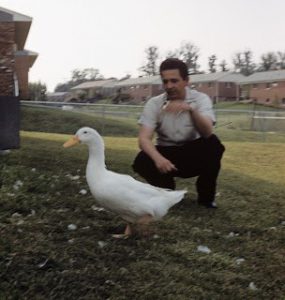 Rules when using “unless”
Rules when using “unless” The “snowball” effect
The “snowball” effect Sorting it out: Among / Between / Amid
Sorting it out: Among / Between / Amid

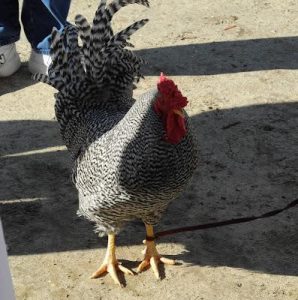 “So that” vs. “In order that”
“So that” vs. “In order that” Spoken English words that should
Spoken English words that should  “Supposed to” vs. “Suppose to”
“Supposed to” vs. “Suppose to” “Theirselves” and other reflective mistakes
“Theirselves” and other reflective mistakes “Then” vs. “Than”
“Then” vs. “Than”
 “To” vs. “Too”
“To” vs. “Too”
 To “Talk Turkey”
To “Talk Turkey” Verbs of perception and adjectives
Verbs of perception and adjectives “Worse” vs. “Worst”
“Worse” vs. “Worst”